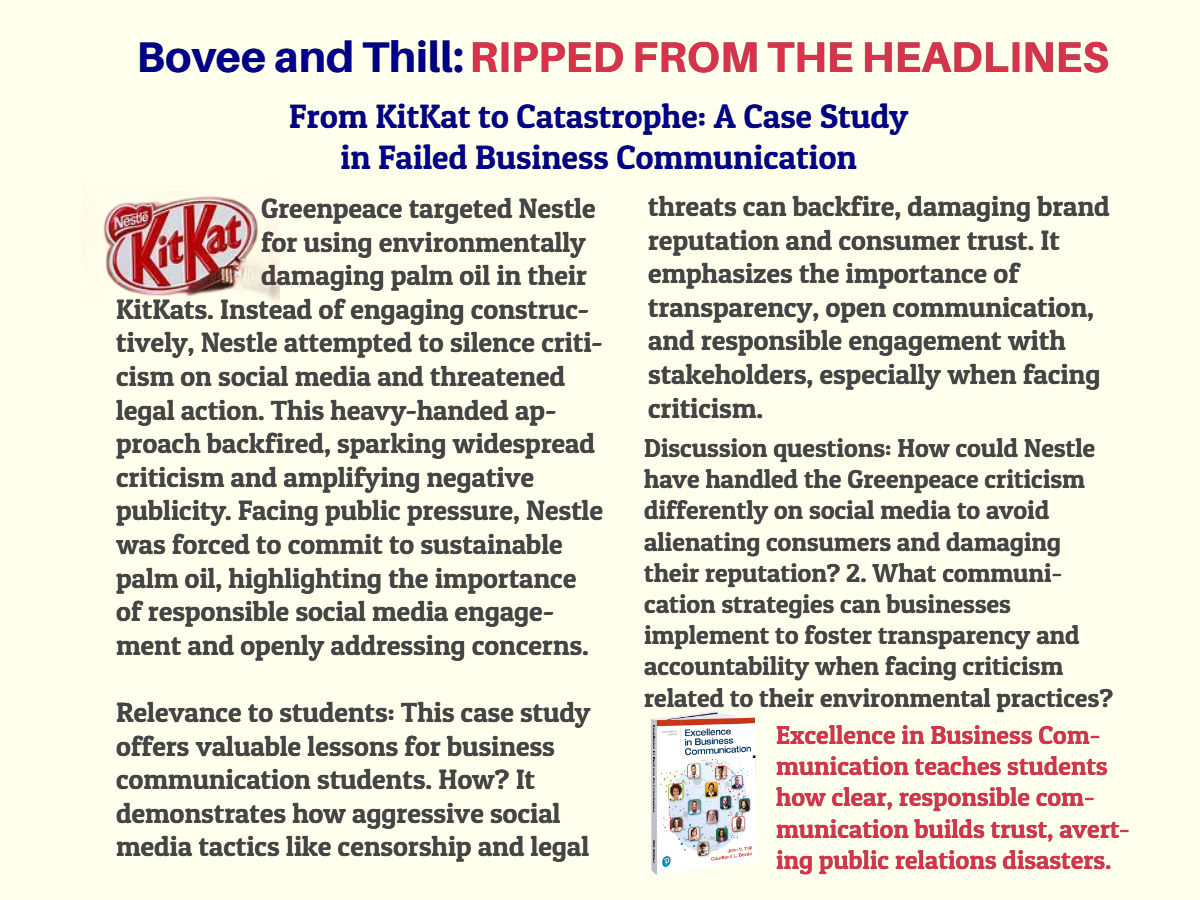
Answers
1. Here's how Nestle could have handled the Greenpeace criticism differently:
Acknowledge the concerns: Publicly acknowledge Greenpeace's criticisms and express understanding of the environmental concerns surrounding palm oil.
Transparency and commitment: Explain their current efforts towards sustainable palm oil sourcing and outline a clear roadmap for future improvements.
Open dialogue: Encourage open dialogue with consumers on social media, addressing their questions and concerns honestly.
Collaboration: Express willingness to collaborate with environmental organizations like Greenpeace to find solutions.
2. Communication Strategies for Businesses Facing Criticism:
Transparency: Be upfront and honest about environmental practices, acknowledging any shortcomings and outlining steps for improvement.
Proactive communication: Address potential issues before they escalate, and regularly communicate sustainability efforts.
Data-driven communication: Back up claims with verifiable data and reports to build trust and credibility.
Multi-channel communication: Utilize various channels like social media, press releases, and website updates to reach different audiences.
Active listening: Encourage feedback and engage in constructive dialogue with stakeholders, addressing concerns directly.
Accountability: Take responsibility for environmental impact and demonstrate a commitment to positive change.
By implementing these strategies, businesses can foster trust and transparency, navigate criticism effectively, and build a positive reputation as responsible environmental stewards.
 Excellence in Business Communication can prevent situations like the Greenpeace-Nestle palm oil controversy. When Greenpeace targeted Nestle for unsustainable practices, Nestle's attempt to silence criticism through social media censorship and legal threats backfired. This highlights the importance of responsible social media engagement for business students.
Excellence in Business Communication can prevent situations like the Greenpeace-Nestle palm oil controversy. When Greenpeace targeted Nestle for unsustainable practices, Nestle's attempt to silence criticism through social media censorship and legal threats backfired. This highlights the importance of responsible social media engagement for business students.
The Nestle case demonstrates how aggressive tactics damage brand reputation. Censorship and legal threats alienate consumers and create a perception of a company unwilling to be held accountable. Instead, businesses should prioritize transparency. Open communication with stakeholders, including critics, fosters trust and allows for constructive dialogue.
By addressing concerns directly and outlining plans for improvement, Nestle could have minimized negative publicity. Business communication students learn that responsible social media engagement builds trust, strengthens brand image, and allows companies to navigate criticism effectively.